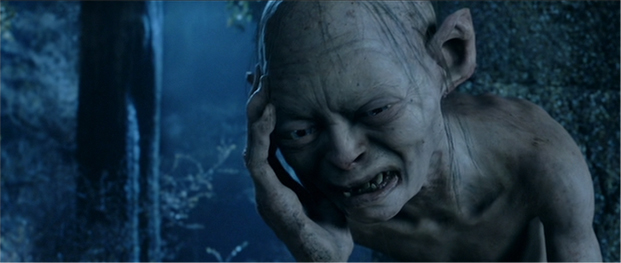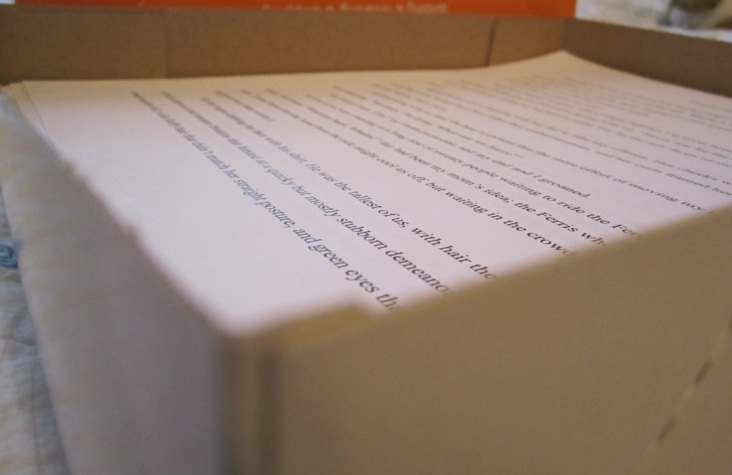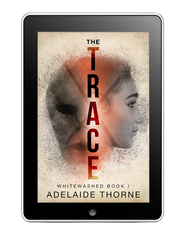|
Book 2 had a title, and then it didn't. It had a title that I thought was pretty cool, but the more I researched the word, the more I realized that anamnesis is something far too deep and complex to be attributed to a single book. Anamnesis is a more encompassing word that, in my mind, is the crux of the whole trilogy. So Book 2 became title-less again.
I remember how long it took me to come up with a name for The Trace. I tried variations of different things for weeks until I finally settled on a title that I thought worked. The Integer came from a two-minute search. When I read the full definition, it clicked.
0 Comments
There are some people in the world, those strange, magical, confident people, who have no problem sharing something they have created. I'll be real clear. I am not one of those people. I am the person who immediately gets paranoid when someone mentions the possibility of, potentially, maybe in the future, reading my writing. I panic. I run home and hide my laptop and flash drive where no one will ever find them. Except maybe my cat, because she's fat and nosy and can find anything I don't want her to find. I hold onto my book like it's The Ring and I'm Gollum. No one can touch the Precious except us.
When I first started writing Le Trace, people wanted to read it, because people are nice and want to support others. Friends, family, classmates, coworkers. I was thrilled. "Wow, people want to read what I'm writing!" So I shared my half-written little (who am I kidding, it was giant) book with whoever asked, because at that time, I didn't believe in drafts. Drafts were for aliens. When I wrote something, the finished product was the first product. (More on my draft aversion in, like, ten other posts.) I finally realized that no one, ever, types everything in Microsoft Word, then slams shut their laptop and declares, "Alright, I'm done!" Because of this realization, I came to the conclusion that, Well, crap, I probably shouldn't have shared my un-finished story with a bunch of people who are going to think that I just handed them a complete story. Because I didn't. I take it back. Pretend you never read it. That was awful. Ella was annoying, her best friend was evil, there were random characters like Joe and Peter, and nothing happened in the story except Ella was confused a lot. Thus entered the Gollum me, who will inwardly look like this if you ask me if you can read my book: My favorite part of writing has come: the part where I've finished an entire rough draft of a book and am now ready to begin editing the crap out of it. This has only happened once before, so I'm still not used to the feeling. It's a really exciting feeling. I'm going to be real blunt with you. The state of Book Two (whose name has unfortunately not yet appeared to me) is rough. Imagine waking up and seeing that your hair has grown secret rooms amid the tangles. Imagine throwing spaghetti and pine cones into a bowl. Then transfer those images into a Microsoft Word document and call it "Adelaide's Rough Draft." I think it started out okay. A year ago, I was pretty optimistic in my ability to stay concentrated on a single scene before moving onto the next one. That was clearly before I became a real person, a real person who isn't patient and apparently has no attention span (when did that happen to me?). As I struggled to tell myself that I was the type of person who could successfully write a complete scene that was fully woven into the rest of the book, I remembered that I'm a holistic lady. I gotta see the whole picture before I can figure out what's wrong with it. That's when I started saying, "Okay, this scene is crappy and rushed, but keep moving before your eyes fully expand out of your head." Once I'd repeated that enough times, I was able to stop over-analyzing the current scene and move on to the next. That's when my pace picked up quite dramatically. When I wrote The Trace, I put everything in there. I fully developed each and every idea without considering whether that idea had a place in the book. That's why my first draft was like, erm, 160,000 words...The polished version is around 101,000, I believe. What's interesting to me is that Book 2 is around 88,000. I think that's a good thing. Better to start out with less and build upon it, rather than have too much excess that just confuses you. That's what happened with The Trace. That poor book was a huge mess that needed about 403 drafts in order to be anywhere near complete.
Anyway, when I told Nate that I'd finished the first draft for Book 2, his response was, "You mean you finished your rough draft." Nate is the one who taught me that, just because something says "The end", doesn't mean it's anywhere near finished. I didn't understand the concept of drafts until Nate demanded to see the second draft of one of my school papers, and I just blinked in response. Second draft? What is that, some upper level software term along the same lines as interface and matrix? Nope, it's something that every single writer in the world understands. I like to say that the mangled thing that is Book 2 is my first draft; Nate says it's my rough draft. I don't know who is right. Probably him. At any rate, it's a draft, and now it's time to go to Staples and see if the printer guy remembers me from before. All 368 pages will be spewed from the mouth of The Printer and into my welcome arms. Then I get to carry a cardboard box around with me that is stamped CONFIDENTIAL so that people passing me on the streets will look at me with envy and wonder how important I must be, to be happily toting a confidential box. When I open said box, its contents might throw up on me. That will have to be okay. I will begin to tear apart said contents of said box. Highlighters will be depleted, lines will be deleted, and, hopefully, a book will be completed. That rhyming was unintentional, but it was cool. Rhyming is cool. Like bow ties. So you just wrote a book. Congratulations! Seriously. Congratulate yourself, because writing is exhausting, and anyone who says otherwise is not from this planet. Beware of aliens. Anyway, congratulate yourself, but be sure to only pat one shoulder. Because guess what?
You're not actually done writing. This is common sense to most people, but it wasn't for me. Sometimes I wonder what was going through my brain two years ago. "I just spill all my thoughts into Microsoft Word and call it a book, right? Isn't that how this works?" Wrong. The me two years ago had no idea what she was doing. (I still don't, but shh.) The me two years ago didn't understand the concept of editing and thought that drafts were for people who just felt like rewriting their story for fun. The me two years ago should have a name so that I don't have to keep typing out "the me two years ago." Let's call her Shirley. Dear Shirley. You're gonna need a bigger printer. Let me introduce editing by saying that I actually really love editing. Me and editing are great pals. We have our moments—mainly the ones where I'm holding a manuscript drenched in tears of self-questioning—but things always work out for the better. You should invite editing over, Shirley, because otherwise your book is still going to be about a girl who plays soccer and a boy named "Ian." *shuddering ensues* Dear Readers:
Today, I would like to talk about what I call "First Chapter Syndrome." This might already be a term coined by a smart person who has done actual research. My research comes from experience and the woes I've heard from fellow writers who can't move past that first chapter. The first chapter is hard. It's excruciating. It bleeds you dry. Let me tell you a little secret. It took me six years to perfect my first chapter. "What!" I know, I know! I've since realized things. I'm always realizing things, aren't I? That is why I'm a huge proponent of "Do everything wrong at first so that afterward you can do everything right." For instance: The way I wrote my first draft of The Trace? Totally wrong. But that's a discussion for a future blog post. *Makes mental note to self.* Here are three (and only three!) of the things I have learned that prevent writers from succeeding in that first chapter. |
Whitewashed Book ICategories
All
|



 RSS Feed
RSS Feed